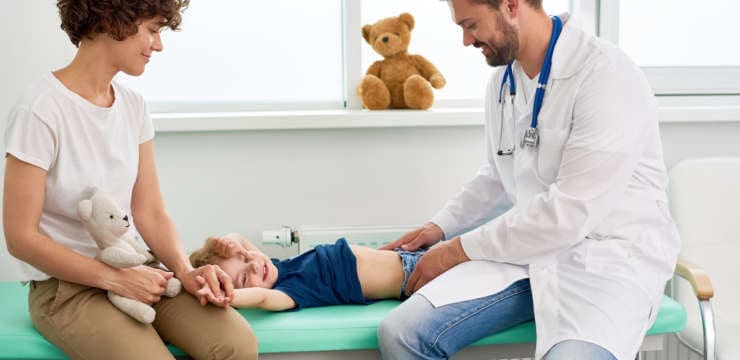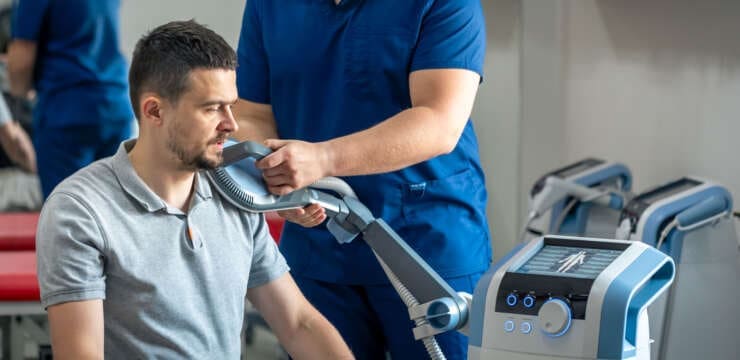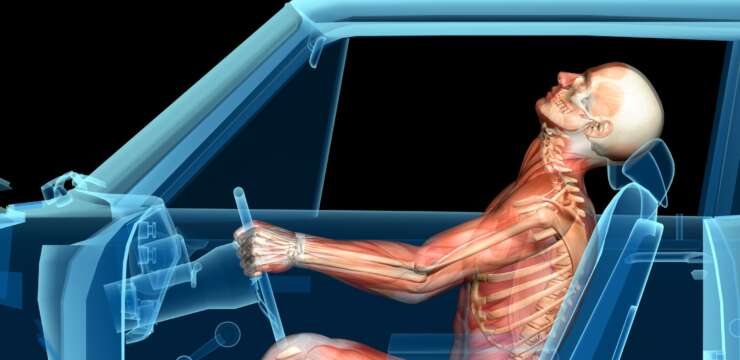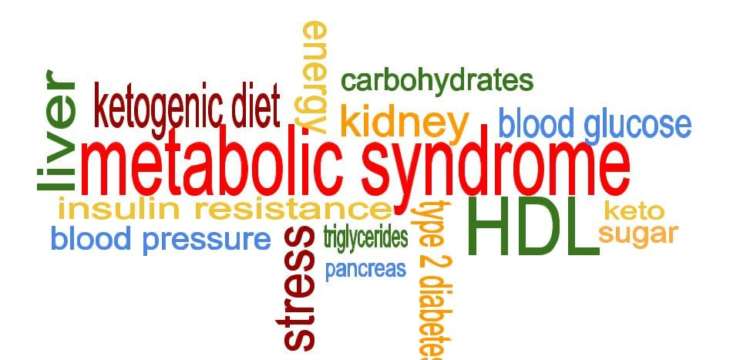
Table of Contents
How Car Accidents Can Damage Gut Health: Trauma, Stress, and the Hidden Impact on Digestion

Section 1: Physical Trauma from Motor Vehicle Accidents and Digestive Organ Damage
Car accidents can deliver powerful forces to the body, especially in high-speed collisions or when seat belts compress the abdomen. Direct trauma to the stomach area can injure the liver, intestines, spleen, pancreas, and other organs vital to digestion. While some injuries cause immediate pain, others develop silently and worsen over time.
One of the most concerning results of abdominal trauma is internal bleeding. The pressure from a seatbelt or a sudden impact can cause blood vessels in the digestive tract to rupture, leading to symptoms such as dizziness, nausea, or swelling (Michigan Auto Law, n.d.). According to personal injury specialists, this kind of injury is often delayed, with stomach pain appearing hours or even days after the accident (AICA Orthopedics, 2024).
Digestive organs, especially the intestines, are highly sensitive to blunt trauma. Lacerations or perforations in the intestinal wall can occur during impact. In severe cases, these can release bacteria into the abdominal cavity, triggering peritonitis—a life-threatening inflammation (MD Searchlight, n.d.).
Dr. Alexander Jimenez, DC, APRN, FNP-BC, a dual-licensed provider in El Paso, TX, emphasizes that many of these internal injuries are initially masked by adrenaline and the body’s shock response. His clinic routinely uses advanced diagnostic imaging like CT scans and MRIs to identify internal damage in personal injury patients, even when symptoms seem mild. These assessments help bridge the gap between physical injury and necessary documentation for legal claims (Jimenez, n.d.).
References – Section 1
AICA Orthopedics. (2024). Delayed stomach pain after a car accident. aica.com/delayed-stomach-pain-after-car-accident
MD Searchlight. (n.d.). Intestinal trauma & gut injury. mdsearchlight.com/gut-health/intestinal-trauma-gut-injury
Michigan Auto Law. (n.d.). Stomach pain and diarrhea after a car accident. www.michiganautolaw.com/personal-injury-lawyer/stomach-pain-diarrhea-after-car-accident
Jimenez, A. (n.d.). Dralexjimenez.com. dralexjimenez.com/
Section 2: How Stress Disrupts the Gut-Brain Axis After a Car Crash
The aftermath of a car accident isn’t just physical—it often includes emotional trauma that can affect the gut. This happens through the gut-brain axis, a communication system that links the central nervous system with the enteric nervous system in the gastrointestinal (GI) tract. Stress, anxiety, and post-traumatic stress disorder (PTSD) from a motor vehicle accident (MVA) can interfere with this axis, disrupting digestion, gut motility, and microbiome balance.
Studies have shown that trauma alters neurotransmitter activity, increasing levels of cortisol and adrenaline, which can slow digestion and exacerbate inflammation (Khiron Clinics, n.d.). This leads to symptoms like stomach cramps, constipation, diarrhea, nausea, and loss of appetite.
Stress can also make the intestinal lining more permeable—a condition known as leaky gut syndrome. When this occurs, harmful substances, such as bacteria and toxins, may enter the bloodstream and trigger widespread inflammation. (Gastroenterology Advisor, n.d.).
In clinical practice, Dr. Jimenez often evaluates patients with persistent abdominal symptoms despite a lack of visible organ trauma. His dual licensure in chiropractic and nurse practitioner roles enables him to assess both the physical and psychosomatic aspects of gut dysfunction. Through detailed patient histories and gut-brain screening tools, he identifies how emotional trauma manifests in the gut, particularly among victims with pre-existing mental health issues (Jimenez, n.d.).
References – Section 2
Khiron Clinics. (n.d.). The gut-brain connection: How stomach issues and trauma are linked. khironclinics.com/blog/the-gut-brain-connection-how-stomach-issues-and-trauma-are-linked
Gastroenterology Advisor. (n.d.). Visceral manipulation and GI symptoms. www.gastroenterologyadvisor.com/features/visceral-manipulation-a-manual-therapy-technique-for-relieving-constipation
Jimenez, A. (n.d.). Health Coach Clinic. healthcoach.clinic/
Section 3: Medication Side Effects After MVAs and Their Impact on Gut Health
Many car accident patients receive prescriptions for medications such as painkillers (e.g., opioids or NSAIDs), muscle relaxants, and antibiotics. While these drugs may be necessary for treating pain and preventing infection, they often come with unintended side effects that harm the gut.
Non-steroidal anti-inflammatory drugs (NSAIDs) like ibuprofen and naproxen can erode the stomach lining, increasing the risk of ulcers and gastritis. Opioids, while effective for pain control, slow down bowel movements, causing constipation and bloating. Antibiotics, on the other hand, disrupt the gut microbiome by killing beneficial bacteria, which can lead to imbalances such as Candida overgrowth or Clostridioides difficile infections (NCBI, 2018).
In patients with traumatic brain injury (TBI)—another possible outcome of MVAs—gut dysbiosis becomes even more severe. According to research, TBI alters microbial diversity and decreases the number of butyrate-producing bacteria, which are crucial for maintaining colon health and controlling inflammation. (NCBI, 2021).
Dr. Jimenez’s integrative approach includes monitoring patients for medication-induced GI complications. His treatment plans frequently incorporate dietary interventions, probiotics, and gut-restorative protocols to restore balance to the digestive system while managing pain safely (Jimenez, n.d.).
References – Section 3
National Center for Biotechnology Information. (2018). Critical illness and gut microbiota. pmc.ncbi.nlm.nih.gov/articles/PMC6025245
NCBI. (2021). TBI-induced gut microbiota dysbiosis. pmc.ncbi.nlm.nih.gov/articles/PMC8003896
Jimenez, A. (n.d.). LinkedIn profile. www.linkedin.com/in/dralexjimenez/
Section 4: Delayed Gastrointestinal Symptoms After a Car Accident
Not all GI symptoms appear immediately after an accident. Delayed-onset stomach issues are surprisingly common. Some patients begin experiencing diarrhea, indigestion, or persistent bloating days or weeks later, often mistaking these signs for minor infections or stress-related problems.
These symptoms can stem from:
-
Intestinal bruising or micro-tears
-
Visceral nerve damage
-
Delayed internal bleeding
-
Psychosomatic responses to trauma
If left untreated, these issues can lead to more serious digestive disorders. According to The Barnes Firm, patients who experience delayed stomach pain should undergo thorough evaluations to rule out organ damage and internal bleeding (Barnes Firm, n.d.). Similarly, Heuer Fischer Legal Group reports that TBIs from auto accidents may indirectly affect digestion by disrupting communication between the brain and gut (Heuer Fischer, n.d.).
Dr. Jimenez’s evaluation often uncovers subtle clues pointing to visceral dysfunction. Through physical assessments and targeted imaging, he identifies internal issues that traditional exams might miss. His legal-medical integration model ensures that gut injuries, even if delayed, are properly documented for insurance or court proceedings.
References – Section 4
The Barnes Firm. (n.d.). Can car accidents cause digestive problems? www.thebarnesfirm.com/can-car-accidents-cause-digestive-problems
Heuer Fischer Legal Group. (n.d.). TBI and gut health. www.heuerfischer.com/firm-overview/blog/tbi-and-gut-health
Jimenez, A. (n.d.). Dralexjimenez.com. dralexjimenez.com/
Section 5: The Link Between Gut Damage and Musculoskeletal Joint Pain
Following a car accident, gut damage is not isolated. Chronic inflammation and gut dysfunction often spill over into the musculoskeletal system, causing joint pain, fatigue, and stiffness.
This is because the gut plays a central role in immune function. When gut integrity is compromised, inflammatory molecules called cytokines are released into the bloodstream. These can trigger joint pain and even conditions like reactive arthritis. Furthermore, poor gut health affects nutrient absorption, which is essential for bone and joint repair (NCBI, 2021).
Dr. Jimenez regularly treats patients who report persistent joint discomfort after experiencing gut problems post-accident. His chiropractic and nutritional protocols often include testing for inflammatory markers, dietary modifications, and soft tissue therapies. These treatments address both the structural and biochemical root causes of pain, helping patients regain mobility and digestive health simultaneously.
References – Section 5
NCBI. (2021). Gut microbiota, inflammation, and musculoskeletal health. pmc.ncbi.nlm.nih.gov/articles/PMC7779861
Jimenez, A. (n.d.). Dralexjimenez.com. dralexjimenez.com/
Section 6: Legal and Clinical Importance of Documenting Gut Injuries in El Paso
In El Paso, Dr. Alexander Jimenez is widely regarded for his dual-scope practice, which combines medical and legal expertise. For personal injury cases, he plays a crucial role in connecting subjective gut symptoms with objective clinical findings.
Whether the complaint is stomach pain, diarrhea, or unexplained fatigue, Dr. Jimenez uses a blend of:
-
Diagnostic imaging (e.g., abdominal CT, ultrasound)
-
Microbiome and stool analysis
-
Detailed intake and trauma timelines
-
Multidisciplinary referrals when needed
By providing clear, evidence-based documentation, Dr. Jimenez helps patients strengthen their legal claims. Clinicians use his reports not only for clinical continuity but also in depositions, settlement negotiations, and courtroom proceedings.
He frequently educates patients on the importance of reporting gut symptoms early, especially when seeking compensation. Even mild complaints, such as acid reflux or bloating, may signal deeper abdominal issues.
References – Section 6
Jimenez, A. (n.d.). Dralexjimenez.com. dralexjimenez.com
Jimenez, A. (n.d.). LinkedIn profile. www.linkedin.com/in/dralexjimenez/
Health Coach Clinic. (n.d.). healthcoach.clinic/
Conclusion: Prioritize Gut Health After a Car Accident
Motor vehicle accidents can damage the digestive system in surprising and serious ways—through direct trauma, stress-induced disruption of the gut-brain axis, adverse drug effects, and delayed symptoms. These issues can even contribute to chronic musculoskeletal pain and functional disability.
If you’ve been in a car accident and are experiencing abdominal pain, bloating, diarrhea, or fatigue, it’s essential to seek immediate medical attention. In El Paso, Dr. Alexander Jimenez offers a unique and thorough approach that integrates chiropractic care, functional diagnostics, and legal expertise. His commitment is to heal and document gut-related injuries for your protection.
References
AICA Orthopedics. (2024, April 5). Delayed stomach pain after a car accident. AICA. aica.com/delayed-stomach-pain-after-car-accident/
Barnes Firm. (n.d.). Can car accidents cause digestive problems? The Barnes Firm. www.thebarnesfirm.com/can-car-accidents-cause-digestive-problems/
Gastroenterology Advisor. (n.d.). Visceral manipulation: A manual therapy technique for relieving constipation. Gastroenterology Advisor. www.gastroenterologyadvisor.com/features/visceral-manipulation-a-manual-therapy-technique-for-relieving-constipation/
Heuer Fischer Legal Group. (n.d.). TBI and gut health. Heuer Fischer. www.heuerfischer.com/firm-overview/blog/tbi-and-gut-health/
Jimenez, A. (n.d.). Dralexjimenez.com – Functional medicine and chiropractic injury care. dralexjimenez.com/
Jimenez, A. (n.d.). Health Coach Clinic – Integrated gut and inflammation therapy. healthcoach.clinic/
Jimenez, A. (n.d.). Dr. Alexander Jimenez LinkedIn Profile. www.linkedin.com/in/dralexjimenez/
Khiron Clinics. (n.d.). The gut-brain connection: How stomach issues and trauma are linked. Khiron Clinics. khironclinics.com/blog/the-gut-brain-connection-how-stomach-issues-and-trauma-are-linked/
MD Searchlight. (n.d.). Intestinal trauma & gut injury. MD Searchlight. mdsearchlight.com/gut-health/intestinal-trauma-gut-injury/
Michigan Auto Law. (n.d.). Stomach pain and diarrhea after a car accident. Michigan Auto Law. www.michiganautolaw.com/personal-injury-lawyer/stomach-pain-diarrhea-after-car-accident/
National Center for Biotechnology Information. (2018). The role of the gut microbiota in critical illness. U.S. National Library of Medicine. pmc.ncbi.nlm.nih.gov/articles/PMC6025245/
National Center for Biotechnology Information. (2021). Traumatic brain injury and gut dysbiosis. U.S. National Library of Medicine. pmc.ncbi.nlm.nih.gov/articles/PMC8003896/
National Center for Biotechnology Information. (2021). Gut microbiota and systemic inflammation. U.S. National Library of Medicine. pmc.ncbi.nlm.nih.gov/articles/PMC7779861/
Disclaimers
Professional Scope of Practice *
The information herein on "Auto Accident Digestive Issues: Unseen Injuries Explained" is not intended to replace a one-on-one relationship with a qualified health care professional or licensed physician and is not medical advice. We encourage you to make healthcare decisions based on your research and partnership with a qualified healthcare professional.
Blog Information & Scope Discussions
Welcome to El Paso's wellness blog, where Dr. Alex Jimenez, DC, FNP-C, a board-certified Family Practice Nurse Practitioner (FNP-C) and Chiropractor (DC), presents insights on how our team is dedicated to holistic healing and personalized care. Our practice aligns with evidence-based treatment protocols inspired by integrative medicine principles, similar to those found on dralexjimenez.com, focusing on restoring health naturally for patients of all ages.
Our areas of chiropractic practice include Wellness & Nutrition, Chronic Pain, Personal Injury, Auto Accident Care, Work Injuries, Back Injury, Low Back Pain, Neck Pain, Migraine Headaches, Sports Injuries, Severe Sciatica, Scoliosis, Complex Herniated Discs, Fibromyalgia, Chronic Pain, Complex Injuries, Stress Management, Functional Medicine Treatments, and in-scope care protocols.
Our information scope is limited to chiropractic, musculoskeletal, physical medicine, wellness, contributing etiological viscerosomatic disturbances within clinical presentations, associated somato-visceral reflex clinical dynamics, subluxation complexes, sensitive health issues, and functional medicine articles, topics, and discussions.
We provide and present clinical collaboration with specialists from various disciplines. Each specialist is governed by their professional scope of practice and their jurisdiction of licensure. We use functional health & wellness protocols to treat and support care for the injuries or disorders of the musculoskeletal system.
Our videos, posts, topics, subjects, and insights cover clinical matters, issues, and topics that relate to and directly or indirectly support our clinical scope of practice.*
Our office has reasonably attempted to provide supportive citations and has identified the relevant research studies or studies supporting our posts. We provide copies of supporting research studies available to regulatory boards and the public upon request.
We understand that we cover matters that require an additional explanation of how they may assist in a particular care plan or treatment protocol; therefore, to discuss the subject matter above further, please feel free to ask Dr. Alex Jimenez, DC, APRN, FNP-BC, or contact us at 915-850-0900.
We are here to help you and your family.
Blessings
Dr. Alex Jimenez DC, MSACP, APRN, FNP-BC*, CCST, IFMCP, CFMP, ATN
email: coach@elpasofunctionalmedicine.com
Licensed as a Doctor of Chiropractic (DC) in Texas & New Mexico*
Texas DC License # TX5807
New Mexico DC License # NM-DC2182
Licensed as a Registered Nurse (RN*) in Texas & Multistate
Texas RN License # 1191402
ANCC FNP-BC: Board Certified Nurse Practitioner*
Compact Status: Multi-State License: Authorized to Practice in 40 States*
Graduate with Honors: ICHS: MSN-FNP (Family Nurse Practitioner Program)
Degree Granted. Master's in Family Practice MSN Diploma (Cum Laude)
Dr. Alex Jimenez, DC, APRN, FNP-BC*, CFMP, IFMCP, ATN, CCST
My Digital Business Card





